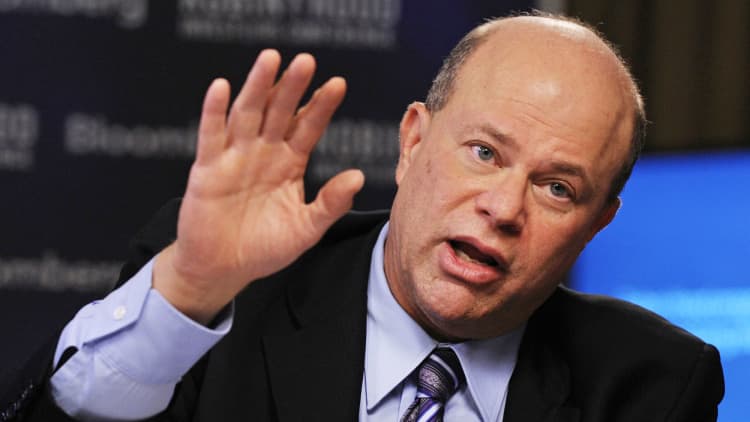
Four hedge fund managers joined the 10-figure club last year, making more than $1 billion as the industry showed signs of a rebound.
Indeed, the 25 highest-paid hedge fund managers last year made the most money they have in four years, collectively $15.38 billion, according to Institutional Investor, which has ranked managers by annual earnings for the last 17 years. That works out to an average of $615 million per manager, an increase of 40 percent from the previous year.
It took $225 million just to make it into the most recent ranking, up from $130 million in 2016 and $135 million in 2015.
The average hedge fund is doing better, and managers are generating bigger returns than 2016, when about half of them lost money or only made it into the single digits as far as investment gains, Institutional Investor said.
The HFRI Fund Weighted Composite Index was up 8.59 percent last year, versus 5.44 percent the year before. So far this year, the index is up 0.39 percent.
The Institutional Investor ranking includes gains on managers' own capital invested in their fund and their share of the firms' total fees. Making it onto the list largely depends on gains on their own capital.
James Simons of Renaissance Technologies topped the list at $1.7 billion. Next were Appaloosa Management's David Tepper, at $1.5 billion, Citadel's Kenneth Griffin at $1.4 billion and Bridgewater Associates' Raymond Dalio at $1.3 billion.
Renaissance's funds beat their historical average, with double-digit gains, while the next three managers fell short of their own averages, but they have so much of their own wealth tied up in their funds that they were able to reap gains from their own capital, Institutional Investor noted.
Tepper more than doubled his personal earnings last year even though Appaloosa's 13 percent gain lagged the S&P 500 and the fund's 30 percent historical annualized gain. The manager, who vaulted to second place from fifth the year before, had big bets last year on Micron Technology, Facebook and Alphabet, as well as the debt and equity of Caesars Entertainment that contributed to the gains. Tepper recently won the bidding for the NFL's Carolina Panthers, agreeing to pay $2.2 billion.
Griffin also more than doubled his earnings last year.
Dalio earned slightly less than he did the prior year and slipped from second to fourth in the ranking, but Institutional Investor points out that management fees helped keep him in the top five.
Bridgewater's Pure Alpha I and II funds were each up about 1.2 percent compared with the strategy's annualized 11.9 percent gain since 1991. That means Dalio didn't generate his money based on returns or performance fees. Instead, at $108 billion, the world's largest hedge fund firm is able to generate a huge pot of management fees, Institutional Investor said.
Third Point's Dan Loeb moved up to seventh from 12th place, making $625 million last year on his best returns since 2013.
Making a debut on the list at No. 20 is Scott Shleifer, a partner at Tiger Global Management and head of its public equity business. Tiger's long-short funds rose 28.2 percent last year, and its long-only funds were up 38.1 percent. That meant a paycheck of $260 million for Shleifer.

